Welcome to the new age in dining

Waiters in masks. Plexiglass between booths. Hot sauce and condiment caddies on tables replaced by hand sanitizer.
Welcome to dining during a pandemic.
April 27 was the first day that restaurants in Georgia were permitted to offer on-premise dining after weeks of closing their dining rooms due to the COVID-19 outbreak. In the past few weeks, people hungry for — or simply curious about — a full-service experience have stepped inside restaurants to encounter dining rooms emptied of up to three-quarters of the tables and chairs or rearranged to enable social distancing. But the coronavirus and the implications of social distancing are far more sweeping on the restaurant industry than simply changing up the seating configuration.
Some restaurant owners have sorted through the details, determined that they could meet the guidelines, and they posted the "open" sign. Still others are biding their time with takeout as they weigh safety against financial factors and consumer confidence.
No matter when a restaurant reopens, dining there will not be the same. The new normal will include physical changes, unseen modifications such as to HVAC systems, technological upgrades and the adoption of behavioral protocol among employees and guests. The latter may be both unfamiliar and uncomfortable.
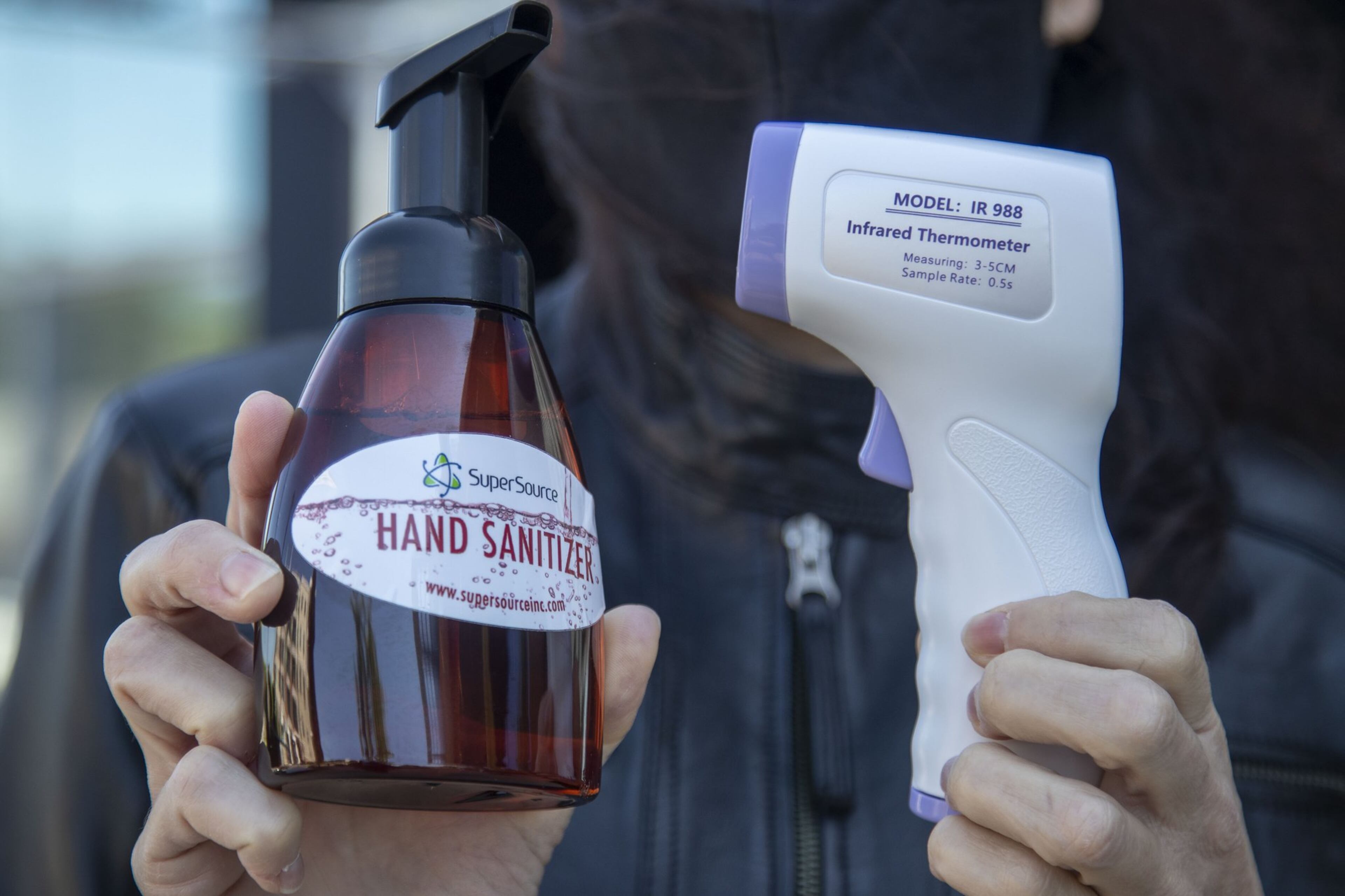
Food-service operators are making some changes to comply with guidelines that Gov. Brian Kemp issued as part of an executive order allowing certain businesses in the state to reopen with restrictions. Among the 39 guidelines, all employees must wear face coverings, a maximum of 10 customers is permitted per 500 square feet and party size is limited to six diners.
Some restaurateurs are taking measures beyond those stipulated by the guidelines to ensure the safety of staff and customers. Upscale restaurants, especially, don't want to kill the mood. This is the hospitality industry, after all. How do they keep an upbeat vibe for a well-heeled clientele in the middle of a public health crisis? For these restaurant operators, the 6-foot economy isn't going away any time soon. They are planning for the future.
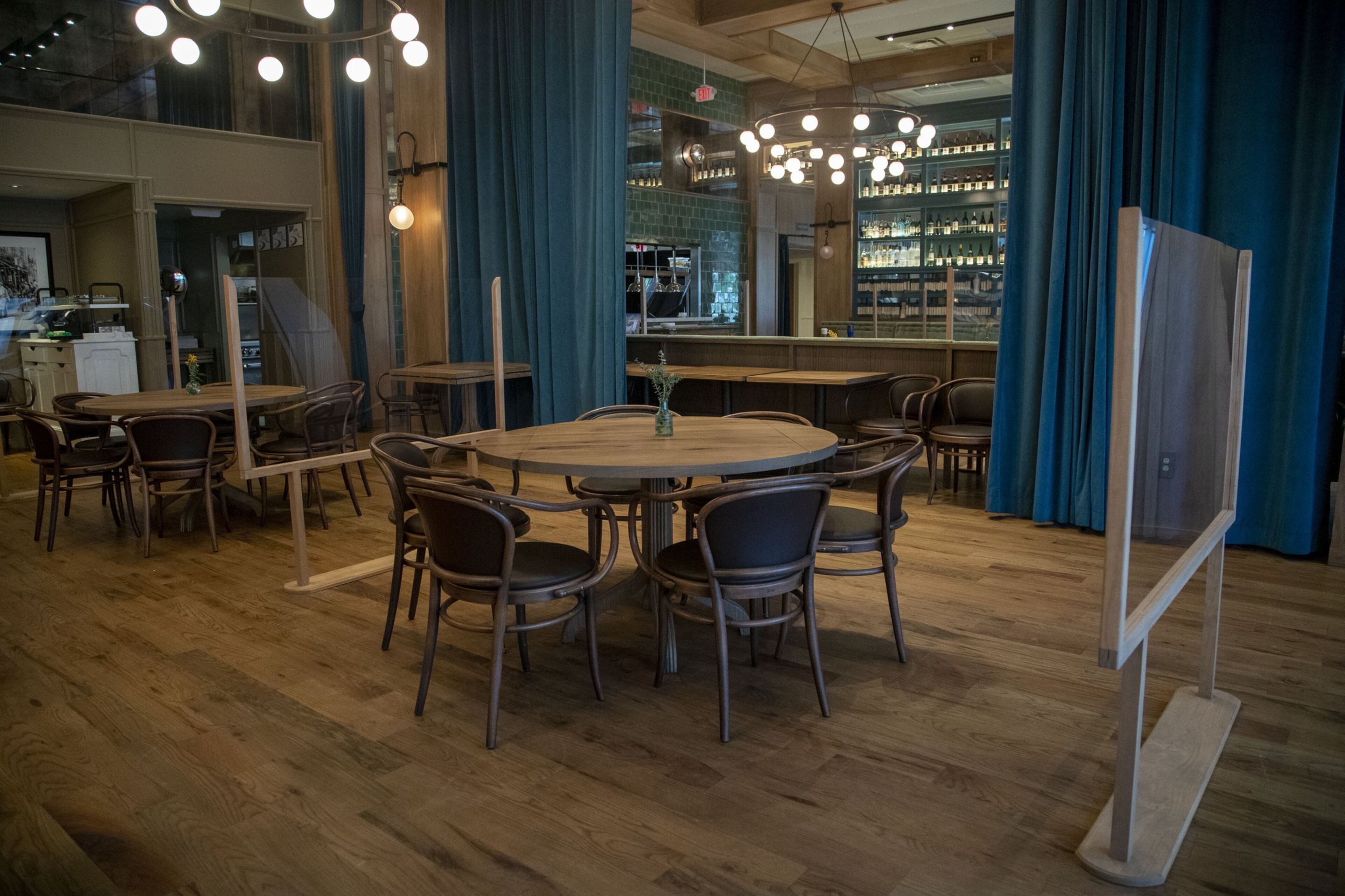
The Select in Sandy Springs and Ray’s on the River are two Atlanta-area restaurants that have installed plexiglass between tables. At the Select, owner Dave Green opted for clear sheets that don’t impede diners’ vision of the open kitchen. At Ray’s, the plexiglass is colored. “It’s blue because plain doesn’t look so good,” said owner Ray Schoenbaum. But the extra safety measure blocks the view of the Chattahoochee River, one of the restaurant’s signature features.
Luckily, Ray’s on the River has plenty of outdoor dining space, now stylishly rearranged for hosting a socially distanced crowd.
Style is interior designer Anita Summers’ specialty. As Principal for Atlanta-based the Johnson Studio at Cooper Carry, she has been involved with the design for prominent area restaurants, including Atlas, Ecco, Rathbun’s, Canoe, South City Kitchen and Rumi’s Kitchen, but she wasn’t involved in the changes at the Select or Ray’s.

“There’s something to be said for figuring out how to do all of this while maintaining some sense of the vibe and culture of a restaurant,” she said. “If guests find the new experience of dining out to be cold and depressing, or they feel unsafe, they may not come back.”
Among Summers’ ideas: adding mirrors and other accessories to create energy in dining rooms despite fewer tables or patrons. “If we need to divide the room, do it in a way that doesn’t look like an empty room,” she said. For restaurants with community tables, her initial idea is, rather than scrap the table, put plants on it as a divider between parties, giving the greenery functional and aesthetic purpose.
Summers is not a fan of tape on the floor to denote the 6 feet of separation we’ve become accustomed to in a time of social distancing. A tile pattern on the floor — even a directional pattern to mark the traffic flow for entering and exiting, she says, could accomplish the same, but in a more visually pleasing manner.
In a period when “it is perception as much as cleanliness,” Summers thinks that hand-washing sinks near wait stations and even in the middle of a dining room are plausible solutions. “We have it in barbecue joints where there is a sink in the dining room. Maybe we start adding sinks to dining rooms. Definitely, we will have sanitation stations for hand sanitizers. One step further is to have sinks designed into the dining room.”
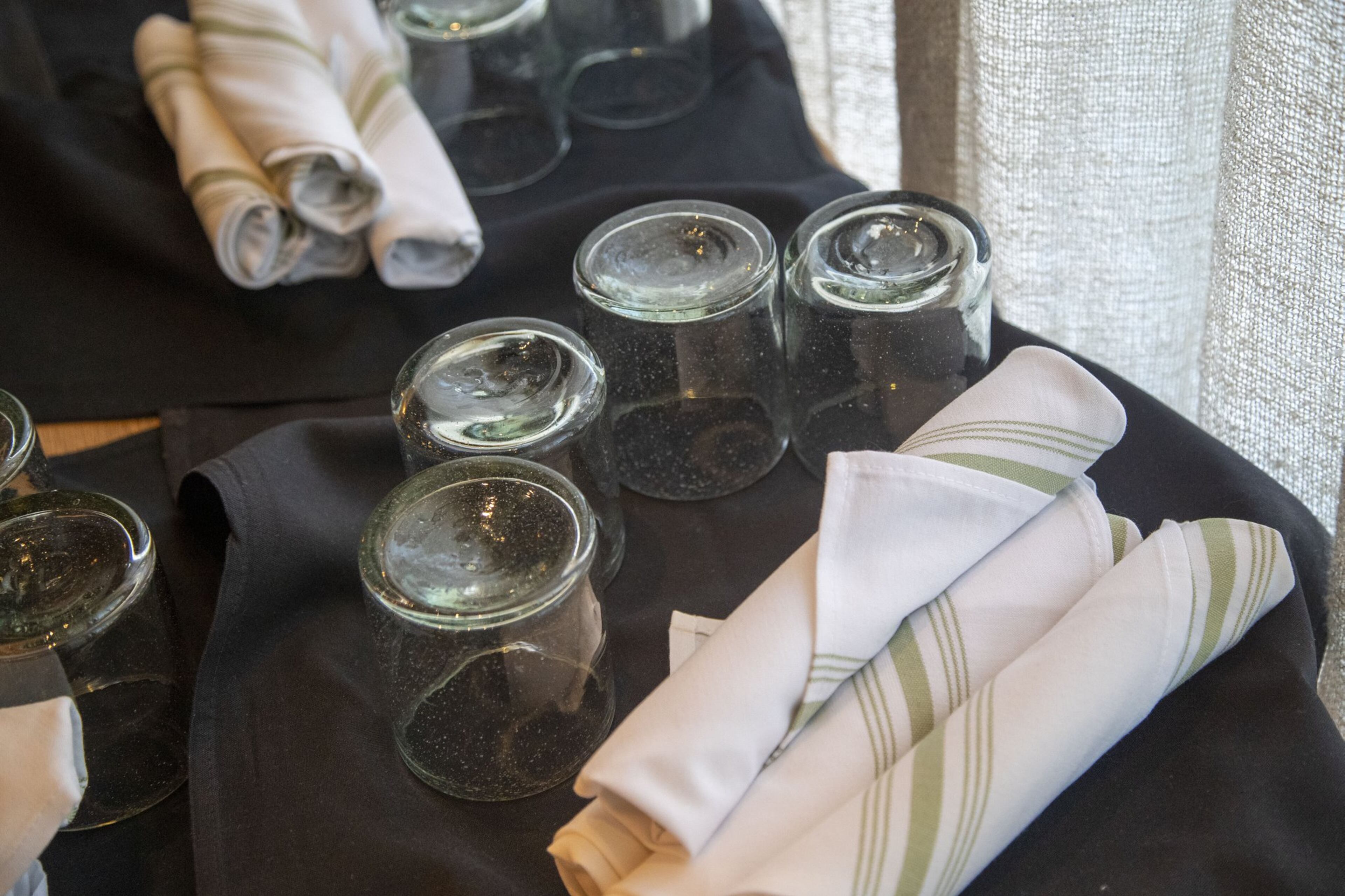
Operators like Green and Schoenbaum are also investing in safety measures to mitigate the respiratory-borne virus that diners may not see, but may feel or smell: UV lights for HVAC. “I can even tell the difference in the smell of the restaurant. It smells really fresh,” said Schoenbaum. “That’s an over-the-top thing.”
“Air flow is another thing,” Summers said. “You won’t want the air to blow on a customer and onto another table.” Engineers are “looking into redirecting air so it goes up and down instead of across the dining room,” she said.
Apart from engineering advances, psychology weighs on the minds of restaurateurs. “Restaurants are the place to help you feel less anxious,” said Green of the Select. To assuage customers, he has put into place a new protocol, particularly at the front of house.
“Training is going to be a big part of the whole new renaissance,” Green said.
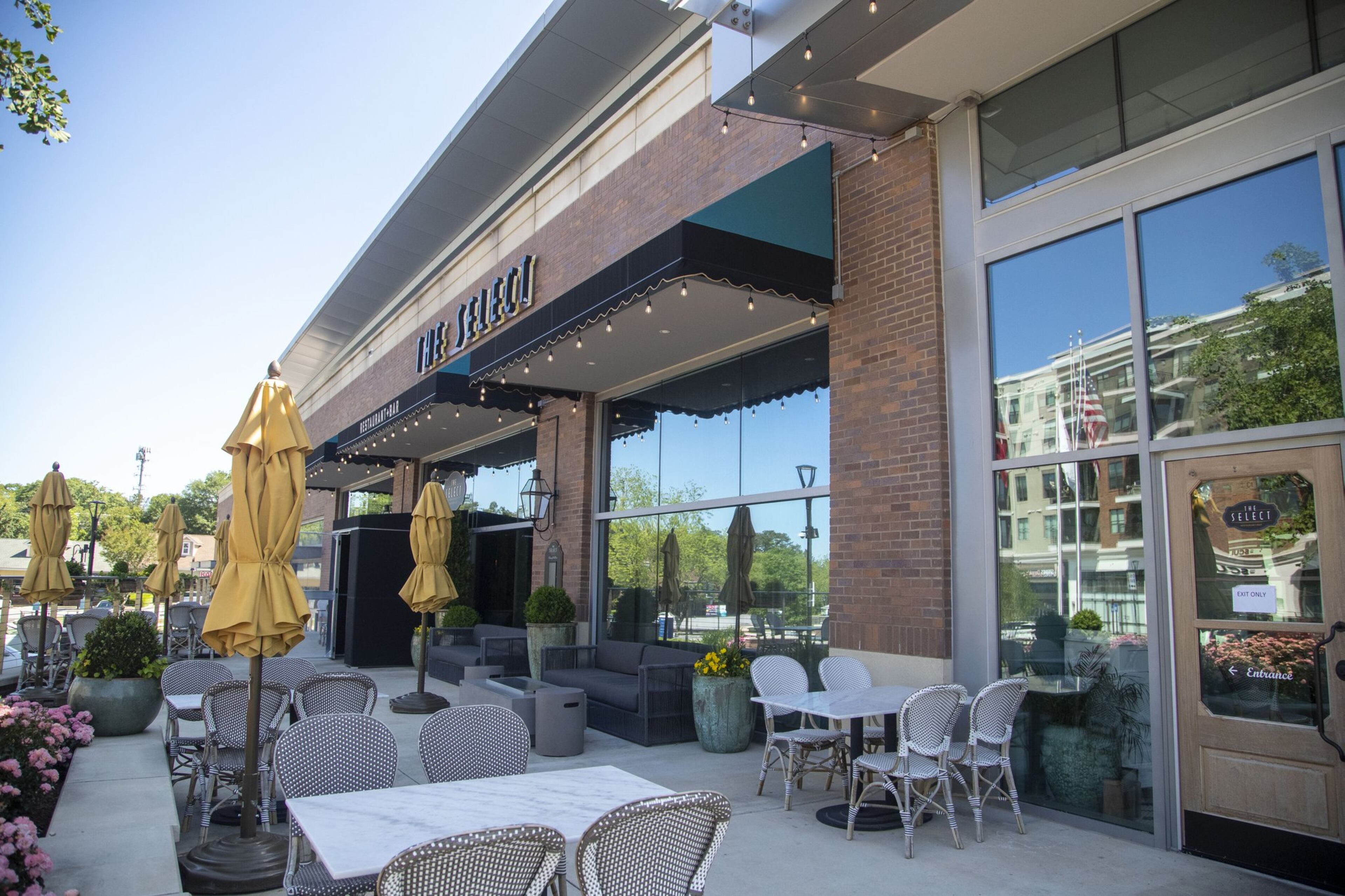
When diners arrive at the Select, hosts and hostesses have been trained to take guests’ temperatures with an infrared thermometer and ask them to squeeze a few splashes of hand sanitizer. Servers have been separated into those who deliver food and those who clear it. Anytime they service a table, they change into a different color pair of bright gloves. “If they come by your table, you know they’ve changed their gloves,” he said.
Schoenbaum is even having servers work on their voice intonation to sound more friendly, since it’s hard to read a face covered by a mask.
Even the back-of-house team is feeling the effects. There are no more high-fives or elbow bumps. A decreased cook team is trying as it might to manage stations — and everything on the menu — from a safe distance, which most industry people admit is next to impossible.
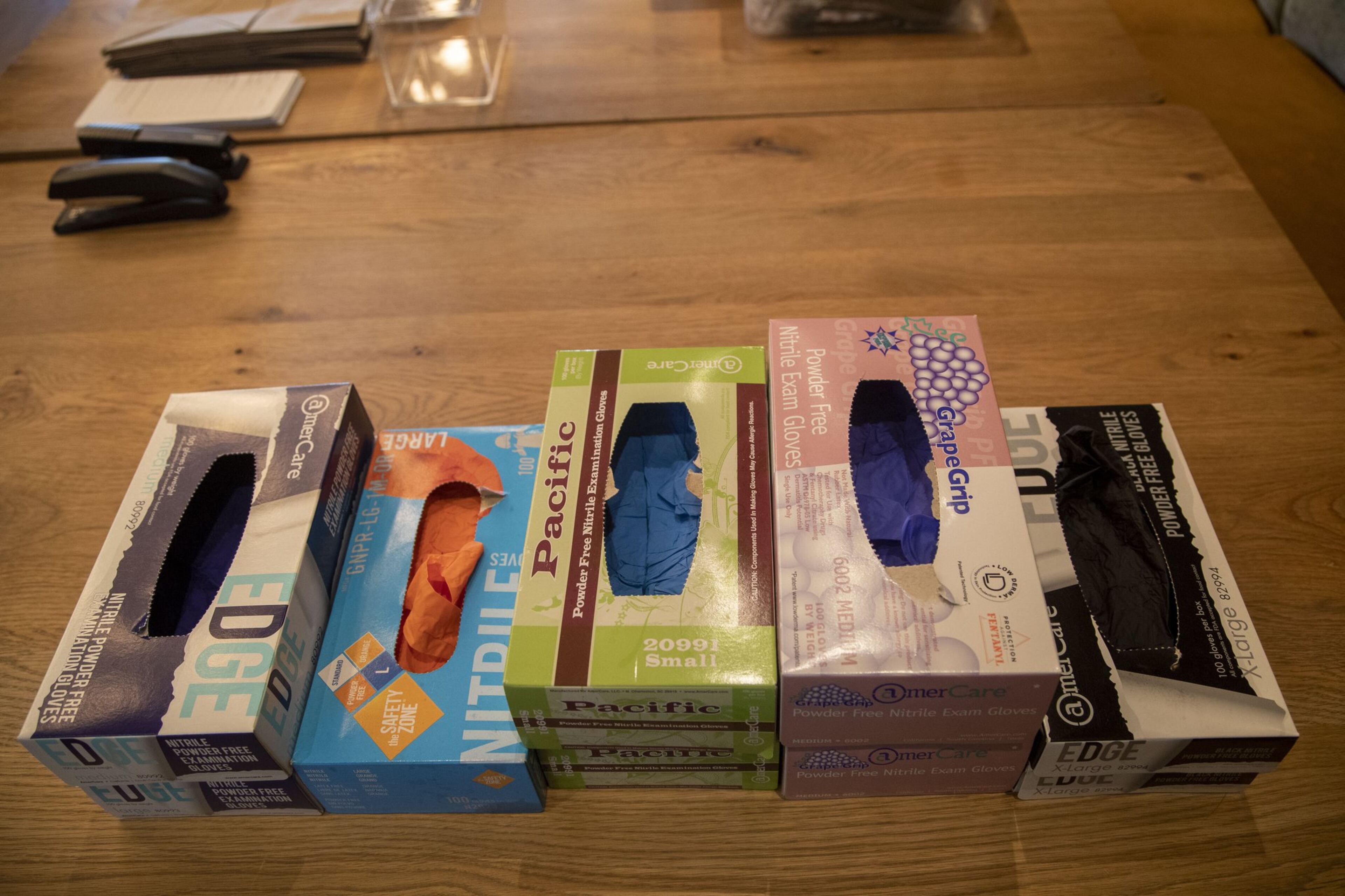
But for places like Taffer's Tavern, opening in July on Main Street in Alpharetta, they are revamping how cooks handle food. Among the safety measures that owner Jon Taffer is taking, all proteins will be prepared using cooking methods, such as sous vide, slow-cooking vacuum-sealed food, that will enhance food safety while allowing the restaurant to offer high-quality ingredients and chef-inspired dishes, according to a company statement.
While the guidelines strongly encourage restaurants to use disposable paper menus, technology is the wave of the future.
Atlanta-based Revel Systems is a leading provider of cloud-based point of sale and business management platforms. Thousands of restaurants throughout the U.S. rely on the company’s POS system, including local eateries from fast-casual Kale Me Crazy to high-end spots like Local Three. Now, the race is on to eliminate contact as much as possible — from ordering food to paying for it.
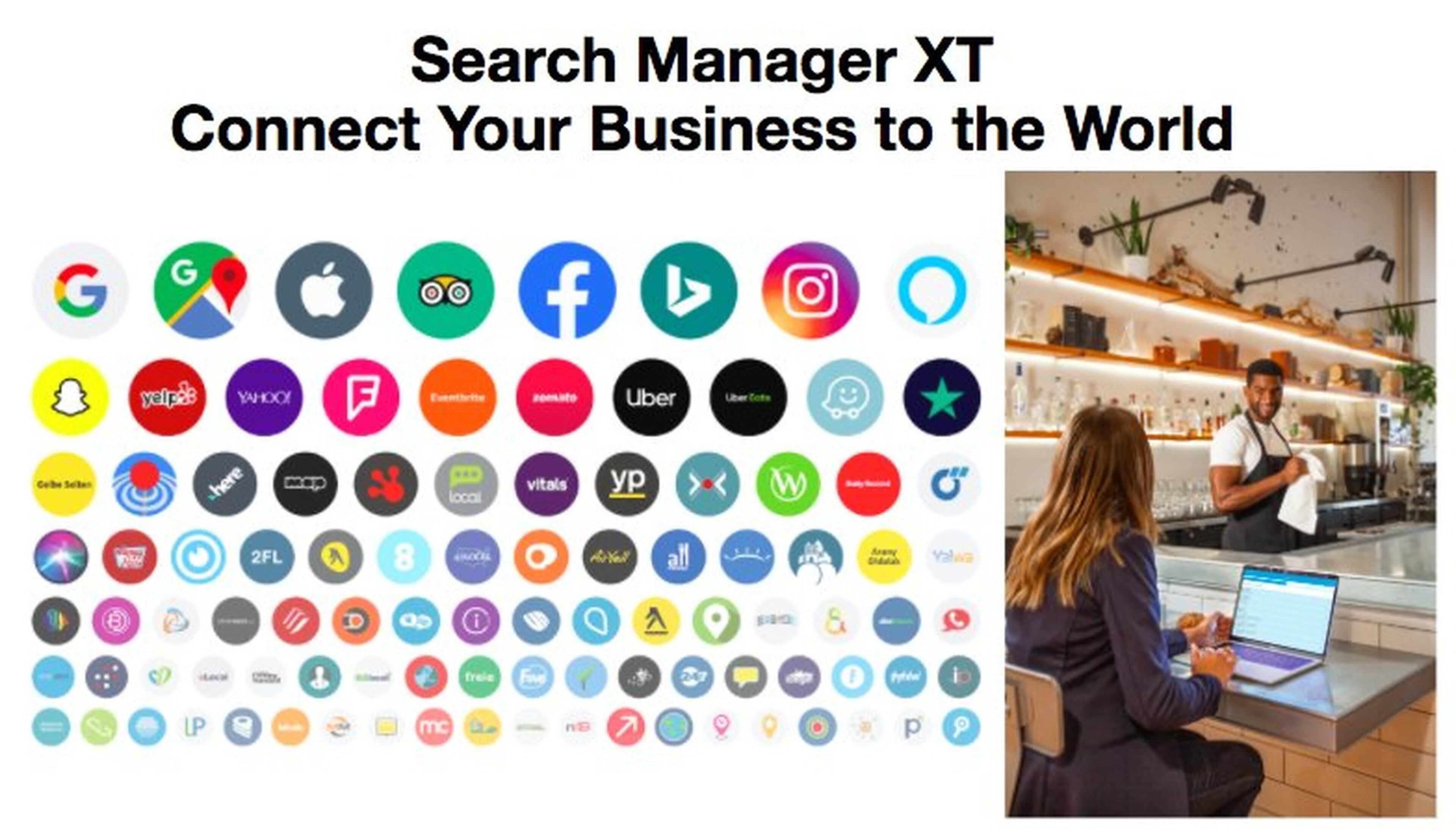
Revel has already sent numerous stylus pens for restaurant workers to claim as their own — like a uniform — so that they don’t touch the POS system. In the next few months, the company will roll out more capabilities for contact-free ordering and payments, many of which customers can manage on their own smartphones instead of a restaurant’s iPad. New features will also enable restaurants to keep customers up to date in real time on every platform – social media, Google and the like – about hours, menu and other key data. “There’s nothing more frustrating to a consumer than to think that a place is open and it’s not,” said Revel chief strategy officer Chris Lybeer.
Customers may experience their own frustration, when they are asked to submit to a temperature check or, if Atlanta restaurants follow restaurant groups based in Asian countries, like Black Sheep, that require diners to fill out a health declaration form prior to dining. “That needs to sort itself out first with regulations,” said Lybeer. “That is more about legalities than technology. We will provide the technology once we know the framework.”
RELATED:


